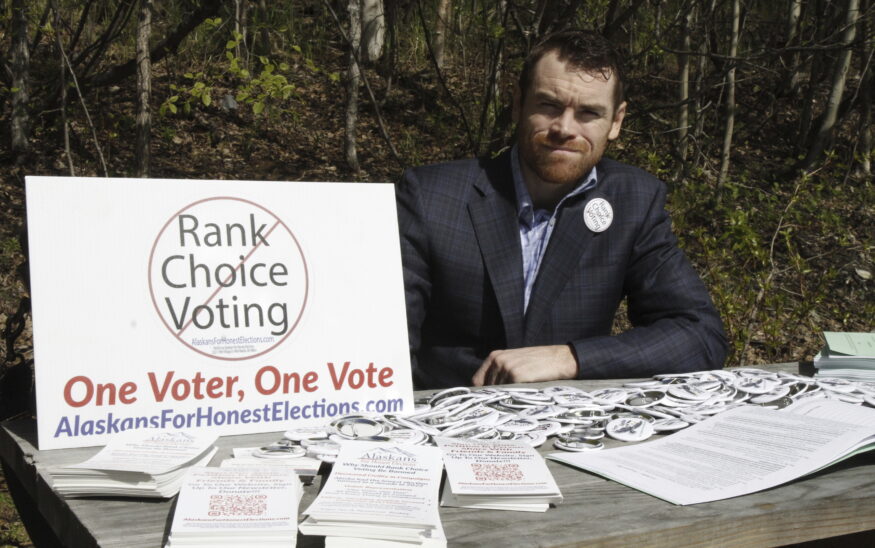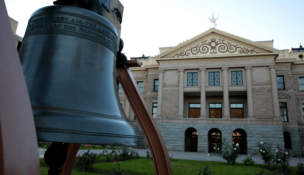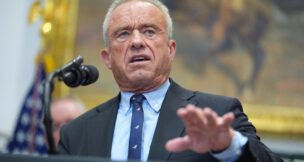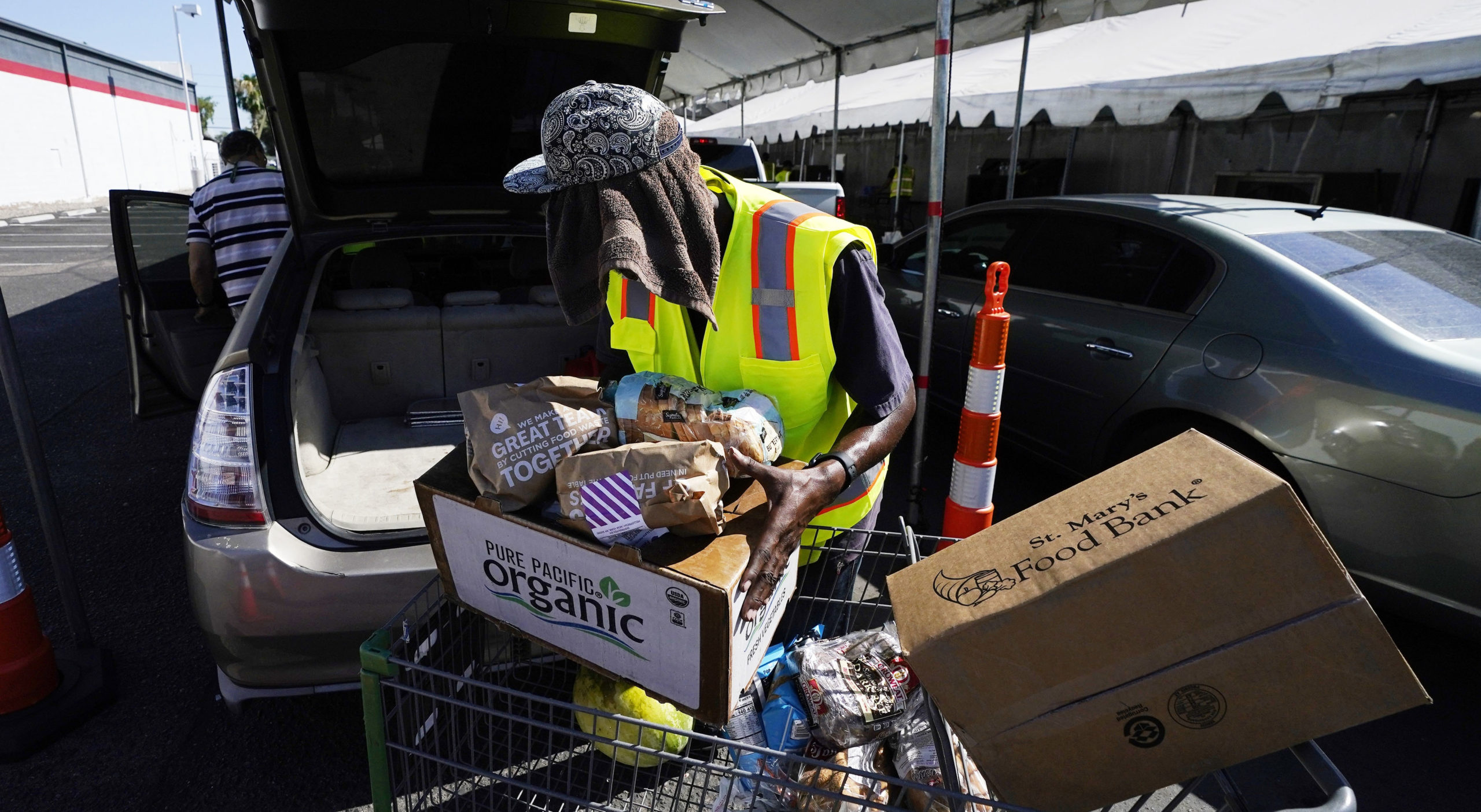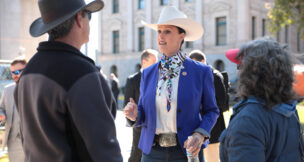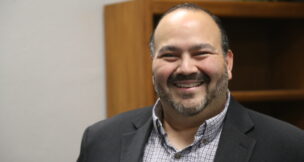Prop. 140 has bipartisan support/opposition, which could deter undecideds
Reagan Priest Arizona Capitol Times//October 26, 2024//
Prop. 140 has bipartisan support/opposition, which could deter undecideds
Reagan Priest Arizona Capitol Times//October 26, 2024//
Of all the propositions on Arizona’s ballot this year, only one boasts both bipartisan support and bipartisan opposition – Proposition 140.
The ballot measure aimed at creating open primaries and instituting ranked choice voting has stirred up many a debate and the creation of unusual coalitions. During a time of increased political polarization, it’s rare to see Democrats and Republicans agree on much, but some Arizona politicians and groups are finding themselves aligned in their support for or opposition to Prop. 140.
The measure would eliminate partisan primaries, place all candidates on one primary ballot and allow the Legislature to determine how many candidates would move to the general election. If more than two candidates make it through the primary, general elections would then use ranked choice voting to determine the winner.
Make Elections Fair Arizona, the campaign behind Prop. 140, counts former Democratic Attorney General Terry Goddard and former Republican state Rep. Rusty Bowers as supporters. Nonpartisan groups like the Center for the Future of Arizona and the Grand Canyon Institute are also proponents.
Opponents of Prop. 140 include state Rep. Analise Ortiz, D-Phoenix, and state Rep. Ben Toma, R-Glendale. Groups like Planned Parenthood Advocates of Arizona and Turning Point Action find themselves listed alongside one another on the No on Prop. 140 campaign website.
Ortiz declined to comment on the measure for this story, but said in a post to X on Oct. 23 that it is a “bad deal for progressive candidates.” Proponents of Prop. 140 say its aim is to moderate candidates on both sides of the aisle to give voters options that are more aligned with the average Arizonan.
Chuck Coughlin, a political consultant who has been working with Make Elections Fair Arizona, said the opposition group is taking an approach of “the enemy of my enemy is my friend” because the measure is attempting to eliminate “extremists” in both parties.
“It’s not surprising when we’re trying to put the authority of elections back in voters’ hands, rather than in the two parties’ hands, that the acolytes of those partisan interests are vocalizing their opposition,” Coughlin said.
Melina Iyer, co-founder of Civic Engagement Beyond Voting, said the group isn’t supporting Prop. 140 because of the power it would give to the Legislature – something she said will give more power to partisan politicians.
“The entire reason that we have a four-page ballot this year is because the Legislature abdicated its responsibility and is shoving off their responsibility of governing onto the voting populace of Arizona,” Iyer said. “I’ve worked adjacent to them for eight years, and I would never trust them with a responsibility like this.”
Iyer said she disagrees with Couglin and other supporters who say Prop. 140 will put an end to extremism in Arizona politics and said there are better ways to address that issue.
“I would love for extremists to lose their chokehold on our state Legislature, but this is not the way to do that,” Iyer said.
She said her organization is supportive of certain parts of Prop. 140, like ranked choice voting, but said the current measure as written would add confusion for voters.
“When I read the plain language of this proposition, which is not very plain, it gives me pause, and it becomes something that I cannot support,” Iyer said.
Coughlin acknowledged that the measure will face an uphill battle at the polls since many of the groups voters look to for guidance are split on the issue.
“We think a good 25 to 30% of the electorate is still undecided on this issue,” Coughlin said. “But if that’s all they’re hearing from, is those two partisan interests, then we’re not going to do well.”
Prop. 140 also faces a challenge in Prop. 133, a legislative referral that would prohibit open primaries in all elections across the state. Coughlin said he thinks Prop. 133 has no chance at passing and said he is more focused on Prop. 140’s success.
“The question is, do we pass with over 50% of the vote? Then we have a path,” Coughlin said. “If we don’t, it’s back to the drawing board.”
Defeat on Nov. 5 would not mark the end of potential changes to the state’s election system. Iyer said she has heard that proponents of ranked choice voting are already planning to get that issue on the ballot in 2026. Coughlin said the Make Elections Fair Again team would use Prop. 140’s failure as an educational opportunity for future propositions or legislation.
“We’re hoping we’re going to succeed on Election Day and that we will have an opportunity to implement the system and put voters back in charge,” Coughlin said.

